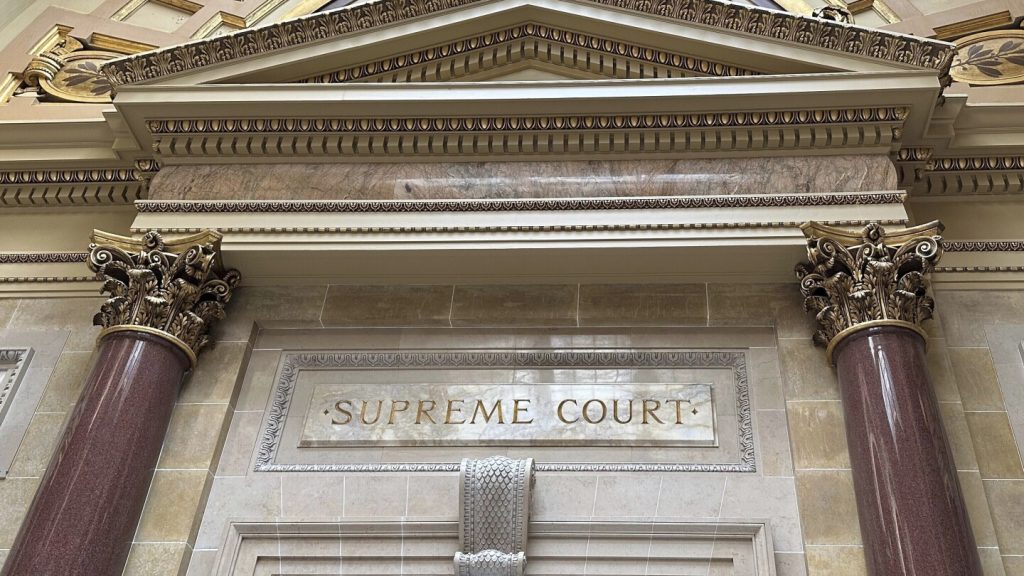Wisconsin Supreme Court justices heard arguments in a case brought by Democratic Governor Tony Evers against the Republican-controlled Legislature regarding the extent of power that legislative committees should have. The case could potentially impact how state government functions, particularly in relation to the approval of projects in a land stewardship program. There are concerns about the separation of powers between the executive and legislative branches if Evers were to prevail in the case. Both sides presented arguments about the constitutional authority of legislative committees and the potential implications of the court’s ruling.
Governor Evers contends that the Legislature’s Joint Finance Committee, which is controlled by Republicans, is overstepping its constitutional authority by acting as a de facto fourth branch of government. The Legislature argues that the committee’s powers, including the approval of conservation projects, are established in state law and court precedent. Justices on the court questioned the extent of power held by the budget committee and expressed concerns about the lack of limits or guardrails in its authority. The potential impact of a ruling in favor of Evers on other legislative committees and functions was also discussed during the proceedings.
Conservative and liberal justices on the Wisconsin Supreme Court raised questions about the broader implications of the case, particularly in terms of how it could affect other legislative committees and their powers. Some justices expressed concerns about making a significant shift in the separation of powers between the executive and legislative branches, while others sought clarification on the limitations of the arguments presented by both sides. Governor Evers’ attorney emphasized that once the Legislature passes a law, it is the responsibility of the executive branch to carry it out, and the Legislature oversteps its authority when committees can veto actions such as approving stewardship projects.
The lawsuit brought by Governor Evers involves the Joint Finance Committee’s rejection of numerous conservation projects under the Knowles-Nelson Stewardship Program, which was created in 1989 to preserve natural areas and expand outdoor recreational opportunities. Republicans have criticized the program for taking land off the tax rolls and increasing state debt. The case hinges on the budget committee’s ability to veto decisions made by the executive branch, which Evers argues is an unconstitutional violation of the separation of powers. Chief Justice Annette Ziegler suggested that the court may need more information before issuing a ruling, prompting questions about the timing of the case and the need for a broader examination of legislative and executive powers.
Governor Evers characterized the Legislature’s budget committee as acting as a fourth branch of government and emphasized the need to rein in its powers during discussions about the case. The legal arguments presented by both sides focus on the interpretation of the constitution, the historical practices of legislative committees, and the balance of powers between different branches of government. The outcome of this case is awaited in the coming weeks or months and could have significant implications for the functioning of state government in Wisconsin. The Wisconsin Supreme Court’s ruling will shape the future of legislative authority and the separation of powers in the state.


